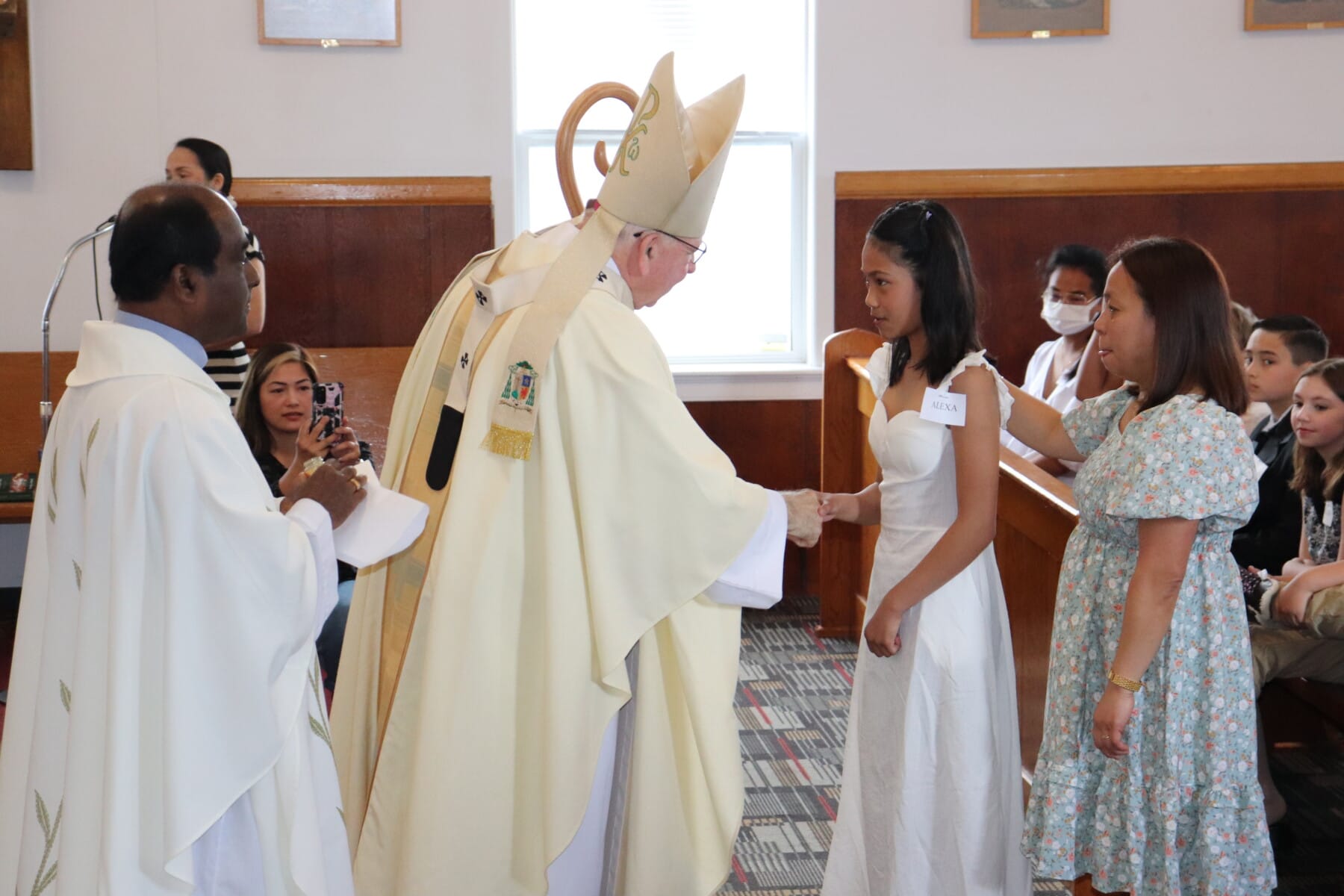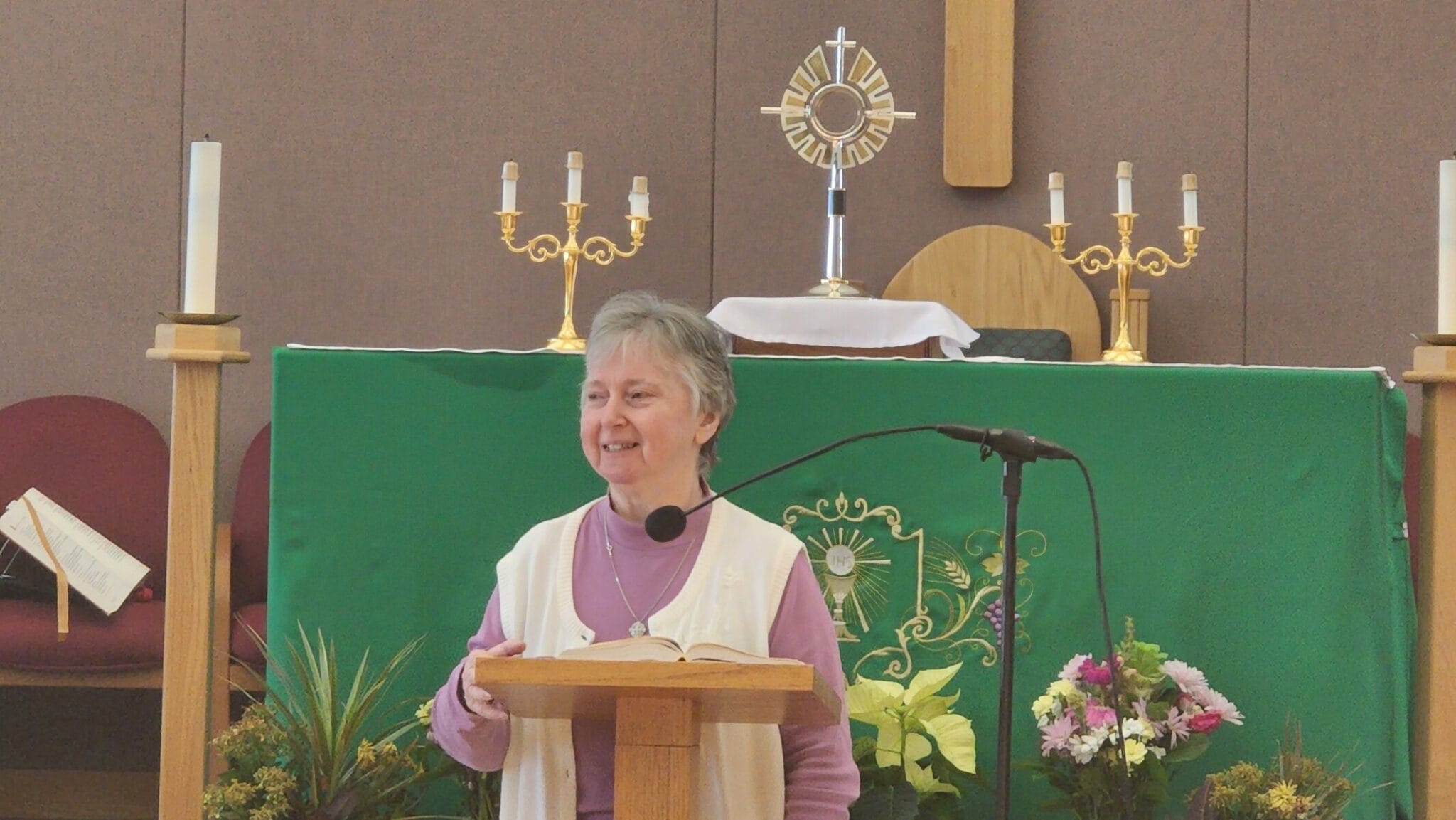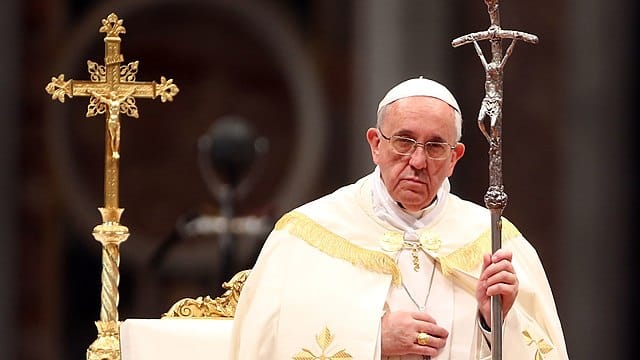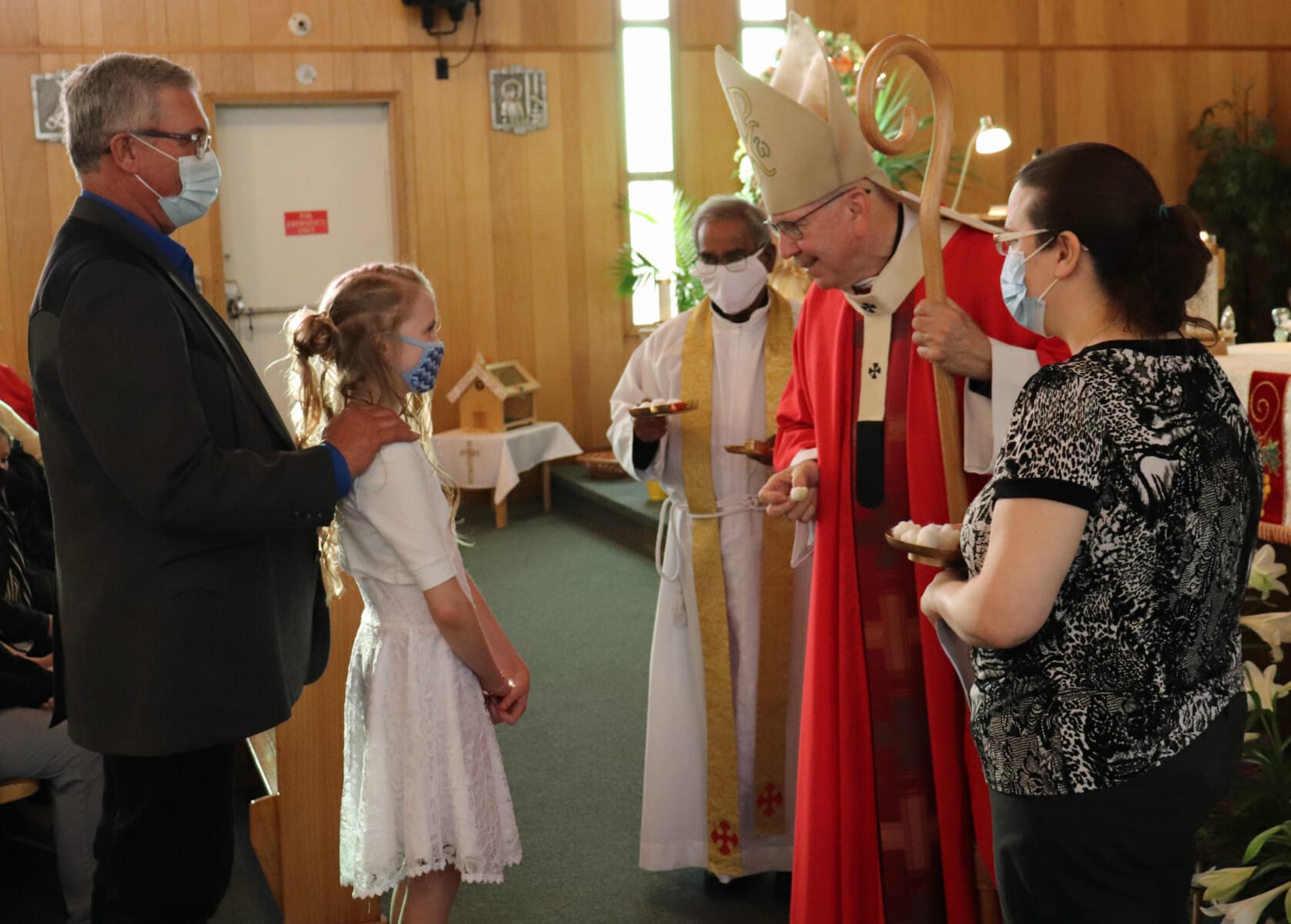
Confirmation & the Gifts of the Spirit
Sacramentum explores the sacraments of the Catholic Church – the depths of their meaning, history, and, above all, the impact they have on each of us in our daily faith lives. In this reflection, Sr. Connie Harkin of the Office of Evangelization and Catechesis discusses the gifts of the Holy Spirit fostered through our confirmation.
Just what is Confirmation? We have heard the term used when ensuring our dates for travel – but this is not the Catholic understanding of the word.
In the Catholic Church, there are three Sacraments of Initiation where we receive the fullness of our identity as followers of Christ: Baptism, Confirmation and Eucharist. In the Catholic usgae of the term, confirmation is one of these sacred and pivotal moments in our faith life.
According to the Catechism of the Catholic Church (CCC), the recipient of the Sacrament of Confirmation becomes “rooted more deeply in sonship” and binds one “more firmly to Christ and the Church” (CCC, 1303). Reception of this Sacrament – as an adult or as a youth – requires a period of preparation and study for those involved. And so, “to this end catechesis for Confirmation should strive to awaken a sense of belonging to the Church of Jesus Christ, the universal Church as well as the parish community. The latter bears special responsibility for the preparation of the confirmands” (CCC, 1309). This time is spent in prayer and study as one prepares to be strengthened by the gifts of the Spirit, namely: wisdom, knowledge, right judgment, understanding, courage, piety, and fear of the Lord.
When we are preparing to receive this Sacrament, we are to learn the names of those Gifts of the Spirit. Yet, I wonder if we ever fully grasp the beauty of each gift? In seeking resources to help those preparing to receive the Sacrament of Confirmation, one might come across the following text, composed by Father Michael Van Sloun, Director of Clergy Personnel in the Archdiocese of St. Paul and Minneapolis:

“Wisdom is first gift of the Holy Spirit. It is the ability to exercise good judgment. It is grounded in common sense and comes from life experience, thoughtful reflection, and learning life’s lessons in “The School of Hard Knocks.” Wisdom distinguishes between right and wrong, seeks and upholds truth and justice, and balances personal good with the common good.
“In the Old Testament wisdom is personified in Sophia, the mythical mother of faith, hope, and love, while in the New Testament wisdom is personified in Jesus himself.
“Understanding is the gift of intelligence and enlightenment. It is the ability to perceive, comprehend, and interpret information; to have insight and discern meaning.
“Counsel is good advice. It is the ability to teach and inform, guide and direct, warn and admonish, recommend, and encourage. The Holy Spirit offers this special gift to parents, teachers, coaches, mentors, advisors, supervisors, elders, and the like. Counsel is not only the ability to give good advice, but to receive it as well.
“Fortitude is an unwavering commitment to God or a proper course of action, and it shows itself is moral strength, courage, determination, patient endurance, long suffering, a resolute spirit, stamina, and resiliency.
“Knowledge is the ability to study and learn; to acquire, retain, and master a wide spectrum of information; and to put it to good use for constructive purposes.
“Fear of the Lord is awe, reverence, and respect for God. It downplays human self-sufficiency and acknowledges that everything comes from God. Consequently, those who ‘Fear the Lord’ gladly offer their praise, worship, and adoration to God alone.
“Piety is the only gift not part of Isaiah’s original list. Piety is personal holiness, the ability to live a decent life, free of sin, devoted to God, and obedient to God’s will.” (Used with permission: The Catholic Spirit, Archdiocesan Newspaper in St. Paul, Minn.)

Our Holy Father, Pope Francis, has spoken often of the seven gifts. Here are some of his comments:
Wisdom: “the grace of being able to see everything with the eyes of God. It is simply this: it is to see the world, to see situations, circumstances, problems, everything through God’s eyes.”
Understanding: “a grace…which awakens in a Christian the ability to go beyond the outward appearance of reality and to probe the depths of the thoughts of God and his plan of salvation.”
Counsel: “the gift through which the Holy Spirit enables our conscience to make a concrete choice in communion with God, according to the logic of Jesus and his Gospel”
Knowledge: “a special gift, which leads us to grasp, through creation, the greatness and love of God and his profound relationship with every creature.”
Fortitude: “the gift [through which] the Holy Spirit liberates the soil of our heart…frees it from sluggishness, from uncertainty and from all the fears that can hinder it, so that the Lord’s Word may be put into practice authentically and with joy.”
Fear of the Lord: “the gift of the Holy Spirit through whom we are reminded of how small we are before God and of his love and that our good lies in humble, respectful and trusting self-abandonment into his hands.”

Parents and family members play a significant role in accompanying the one to be confirmed. They are to be a prime witness and prayerful support. In fulfilling this role, conversations about faith and one’s relationship with Jesus are always beneficial.
In this way, both godparents and confirmands can take this opportunity to share and learn more about their faith, and what this important step of confirmation really signifies.
When we prepare to celebrate the Rite of Confirmation, the confirmands and their sponsors would do well to know the main parts of the reception of the Sacrament of Confirmation: the Proclamation of the Word, the renewal of baptismal vows, the laying on of hands and the anointing with Chrism.
The bishop is the usual celebrant of the Sacrament of Confirmation. At the celebration, the bishop extends his hands over the ones being confirmed while calling upon God to “send Your Holy Spirit upon them to be their helper and guide.” As he anoints each person, the Bishop says, “Be sealed with the Gifts of the Holy Spirit.” The response from the one being confirmed is a simple yet profound “Amen!” During the ritual, each of the confirmands have a sponsor who has accepted to be the one who assists the confirmed in living a life that befits a Catholic Christian. Sometimes, it is possible to have as a sponsor one who was a godparent at baptism.
The journey of faith continues, with the one who is being confirmed, to persevere in their faith and to grow in holiness. The Catechism of the Catholic Church goes on to state that the candidate for Confirmation needs to “be prepared to assume the role of disciple and witness to Christ, both within the ecclesial community and in temporal affairs” (CCC, 1319)
The elements used in the Sacrament of Confirmation are the laying on of hands and the Anointing with Holy Chrism. The Oil of Chrism is one of the three oils that were blessed at the Chrism Mass, celebrated by the bishop and the clergy prior to the Holy Triduum and before Easter, the feast of the Resurrection of Jesus. Since the Sacrament of Confirmation is celebrated during the Holy Sacrifice of the Mass, candles are already burning brightly.
However, it has been known for families to light the Baptismal Candle of the one confirmed afterwards at a home celebration. Therefore, the person is invited to renew their commitment with the guidance of the Holy Spirit. The Sacrament of Confirmation “helps us to bear witness to the Christian faith in words accompanied by deeds” (CCC, 1316). May we confirmed walk with confidence and trust as we pray: “Come, Holy Spirit, fill the hearts of your faithful and kindle in them the fire of Your love.”